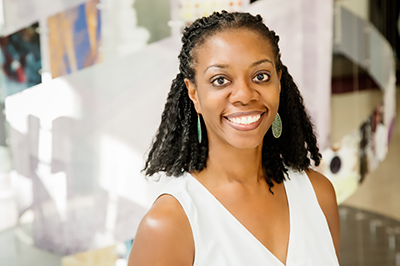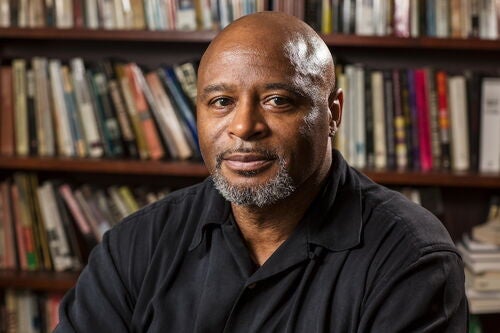Professor collaborates on documentary to expose the effects of violence

Terrible headlines of violence and loss have unfortunately become a normal part of American life. But a professor of sociology and African American studies at Illinois is collaborating on a project in Chicago to show that shootings and murders are more than just headlines—they are life-shattering events that shock entire families and communities.
Ruby Mendenhall realized the importance of putting faces to these daily tragedies and partnered with film maker Lisa Butler to produce the documentary film, “What’s Left Behind,” which focuses on the stories of black mothers and families dealing with the losses of loved ones as the result of violence.
“The goal of ‘What’s Left Behind’ is to get their stories out and to show how all the stress, the lack of sleeping, and the lack of eating affect their health,” Mendenhall said. “So my hope is to co-produce a good documentary that highlights their stories and to have this place where their entire stories can be heard.”
Created under Butler’s production company, herVOICE Films, “What’s Left Behind” will consist of interviews with black mothers from Chicago who have experienced loss at the hands of violence. Mendenhall and Butler hope to take the documentary to film festivals, campuses, and legislators in order to shed light on the long-lasting physical and mental stresses, such as inability to eat or sleep and even hair loss, that experiencing violent loss causes these mothers.
Lately the topic has become increasingly prevalent in Chicago, where murders are on the rise, and shootings have surged more than 88 percent in the first three months of 2016 compared with the same period last year, according to the Chicago Police Department.
While the crime stats are horrifying, the aftershocks of violence on families and communities are equally tragic and not given as much attention. Mendenhall hopes the heartbreaking stories can spark policy change at a national level.
“There’s this hidden America, and so much of the violence and the ripple effects—most people can't really imagine it,” Mendenhall said. “A lot of times, we are protected from it. We’re often buffered from it due to our race and/or class. The thing that stands out is that a lot of the families’ pain and grief is out of the public eye.”
Mendenhall has long studied poverty in black communities, but it was her previous careers as an occupational therapist and infant specialist doing home visits in Chicago’s Robert Taylor public housing community that convinced her to study the issue of violence.
“Working in the Robert Taylor community was really a key turning point,” Mendenhall said. “I remember I would drive home because I lived in Beverley, a mostly white, middle-class neighborhood in Chicago — I would be tense at Robert Taylor and when I got home, I would just feel the stress leaving my body.”
Mendenhall and Butler hope to have the documentary completed by the end of September. Mendenhall and Butler will have conducted about 15-20 interviews by the time the film is released, and since they won’t all make the final cut, they plan to post all of them online for even more exposure to and understanding about the ripple effects of violence.
“We really want to get it out and make sure it’s seen so people can understand and to pull back the veil of what’s happening and the cost of it,” Mendenhall said. “As a society, the cost should be too high for all of us, not just for certain groups but for all of us in this country.”








